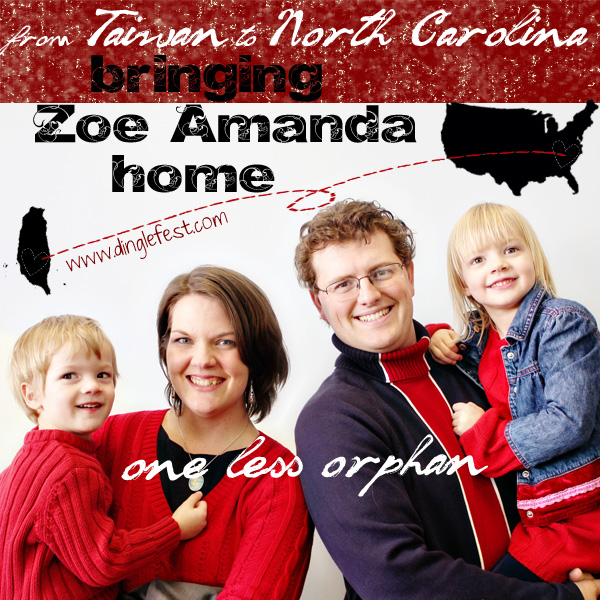On when to share the diagnosis of the daughter we’re adopting
 When I’m talking to my new neighbors about my older daughter, I don’t feel the need to mention “she has blond hair” or “her eyes are blue.” When they meet my willowy and spirited five year old, they’ll see those things.
When I’m talking to my new neighbors about my older daughter, I don’t feel the need to mention “she has blond hair” or “her eyes are blue.” When they meet my willowy and spirited five year old, they’ll see those things.
That’s why I don’t initially share that Zoe Amanda has cerebral palsy. They won’t be able to see it right away, like they can see the white blond hair or soft blue eyes of our other daughter, but like Jocelyn’s descriptors, Zoe’s diagnosis is simply an attribute. It’s not who she is.
I used to blurt it out. Sometimes it made sense to do so, like when people inquired about the speed of her adoption or the referral coming before the home study. (Neither would have been possible in the absence of special needs.) Sometimes I just wanted to let people know before she arrived, so that they can wrap their minds around that now and be free to simply rejoice with us when we bring her home.
And, to be honest, sometimes I mentioned her diagnosis because I’m a chronic oversharer. It’s a pesky symptom of my socialmediaitis.
My husband doesn’t tell people about her diagnosis. To him, it’s relevant to our immediate family but irrelevant to anyone else. He just wants them to know her face and our timelines and the excitement surrounding her adoption.
She is only six months old now, and we’ll be bringing her home next month. (Hooray!) Given her age and given the absence of any visible signs of her diagnosis, we’ll continue to figure out this whole diagnosis disclosure thing as we go along.
How about you? How have you handled sharing your child’s diagnosis with others? Has that changed over time? (Remember, I’m a newbie to special needs parenting, so I’d love any advice you can offer!)
____
Shannon blogs about her family and life in general at Dinglefest.com, and she writes TheWorksofGodDisplayed.com (and tweets about it here) to equip churches to welcome people of all abilities.
Note: To support the site we make money on some products, product categories and services that we talk about on this website through affiliate relationships with the merchants in question. We get a small commission on sales of those products.That in no way affects our opinions of those products and services.


Shannon,
Like you, we didn’t tell everyone that Amber Joy was such a premie (26 weeker), and that she would likely have moderate to permanent hearing loss. I think I was unpleasantly surprised at how much it was an issue to the people we did tell. Even now that she’s home, it’s the first question some people ask when they see me: “What have you found out about her hearing?” Truth is, sometimes I forget that she has developmental delays or hearing loss. She can hear some things and we are working hard to get her the help she needs, but like you said, it’s just one of her traits, not who she is.
I don’t mention my daughters disabilities to others until it becomes relevant. Like when the talk to her, I tell them to she’s deaf. Mostly I just let them figure out her mysteries like everyone else has too.